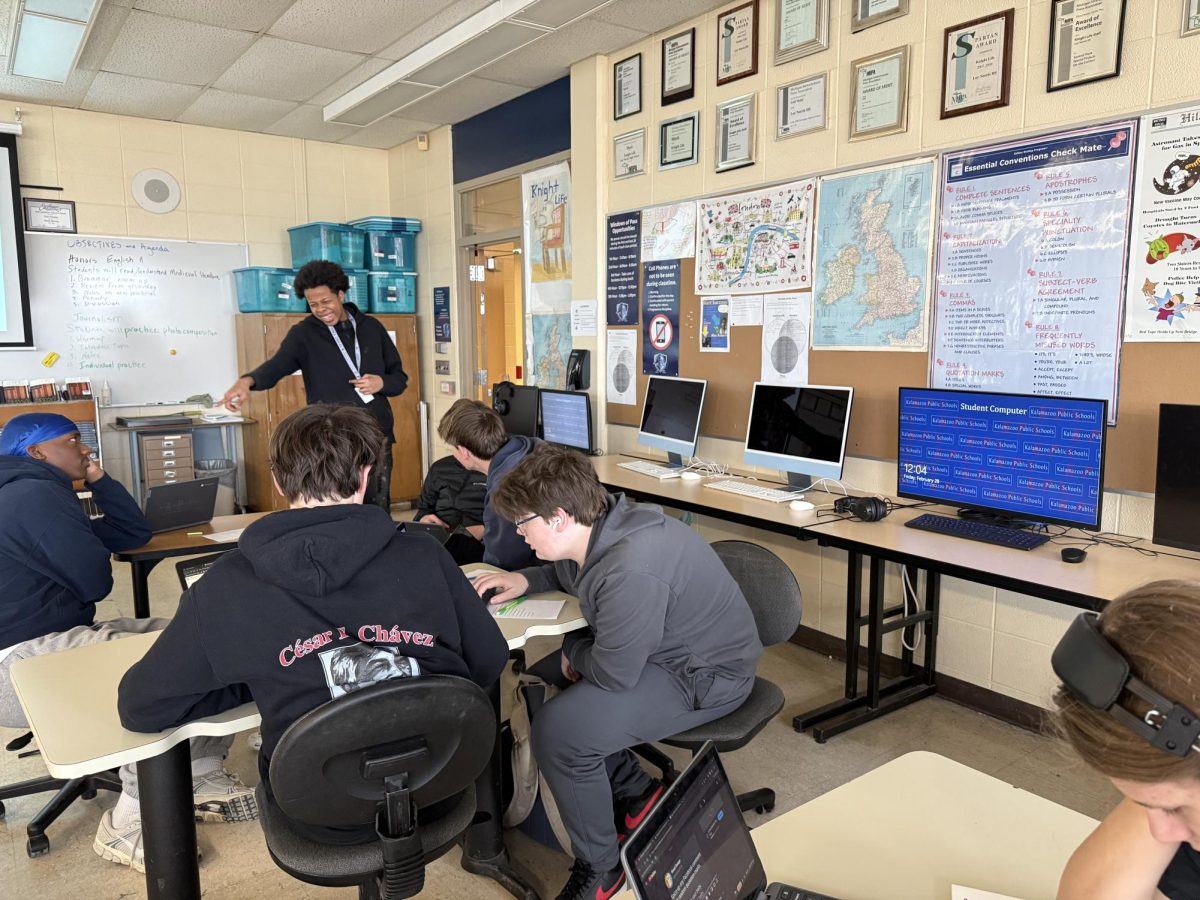A lot of people drink caffeine in the early morning to help prepare for the day ahead of them, but they’re often unaware of the harmful effects of drinking it too much.
“I would have daily headaches when I was drinking caffeine on a regular basis,” said history teacher Michael Wright.
Wright stopped drinking caffeine in summer 2023, largely due to health reasons.
“It wasn’t as hard as I thought it was going to be when I started to quit drinking caffeine,” Wright said. “I didn’t feel concentrated when drinking caffeine. If anything, it made me feel the opposite.”
According to Effects of Caffeine on Cognitive Performance, Mood, and Alertness in Sleep-Deprived Humans, from the National Library of Medicine, “caffeine has been found to significantly decrease reaction times in auditory and visual choice tasks when it was used at doses of as little as 32 mg and as great as 600 mg.”
For reference, there is 55 mg of caffeine in a 12 oz bottle of Mountain Dew and 41 mg in a 12 oz bottle of Dr. Pepper. This means that even if you’re just drinking a small can of soda, your reaction time could actually be slower than if you hadn’t consumed caffeine, which is the opposite of what most people believe.
“I would drink caffeine daily at school and I wouldn’t eat at all during school, and sometimes I would get headaches.” said math teacher Adam Hosler.
Hosler began drinking caffeine when he started being a teacher. Mountain Dew has been his choice, as he started to drink it while he was teaching to hold him over throughout the day because he doesn’t eat lunch.
Consuming caffeine is still very common among teachers, as Wright points out.
“Teachers are expected to teach class very early, and coming right out of college, they are already used to drinking a lot of caffeine, so usually they keep drinking it and it’s so easily accessible at school,” said Wright.
Wright started drinking caffeine in his early 20s when he was in college. He would drink caffeine a lot usually to stay up and study or do homework. For this reason, he wants caffeine to be available to students, even though he’d discourage them from drinking it.
“I think if you want to drink caffeine you should be able to if you’re a student, but I also think there is a lot more risk when consuming a lot of caffeine when you’re younger,” Hosler said.
Another study performed by the Journal of Caffeine Research, “Caffeine Use Disorder: A Comprehensive Review and Research Agenda,” suggested that the main reason people begin drinking caffeine could be the dopamine it releases. Similar to how drugs like amphetamines and cocaine release dopamine, caffeine has a comparable effect that can lead to people becoming addicted to it.
Although caffeine can help young people feel energized, as Wright and Hosler point out, there are still many negative side effects. Caffeine affects everybody in different ways, but it can lead to distractions, anxiety, and addiction.











Owen • Jan 22, 2024 at 2:25 pm
good story lil bro